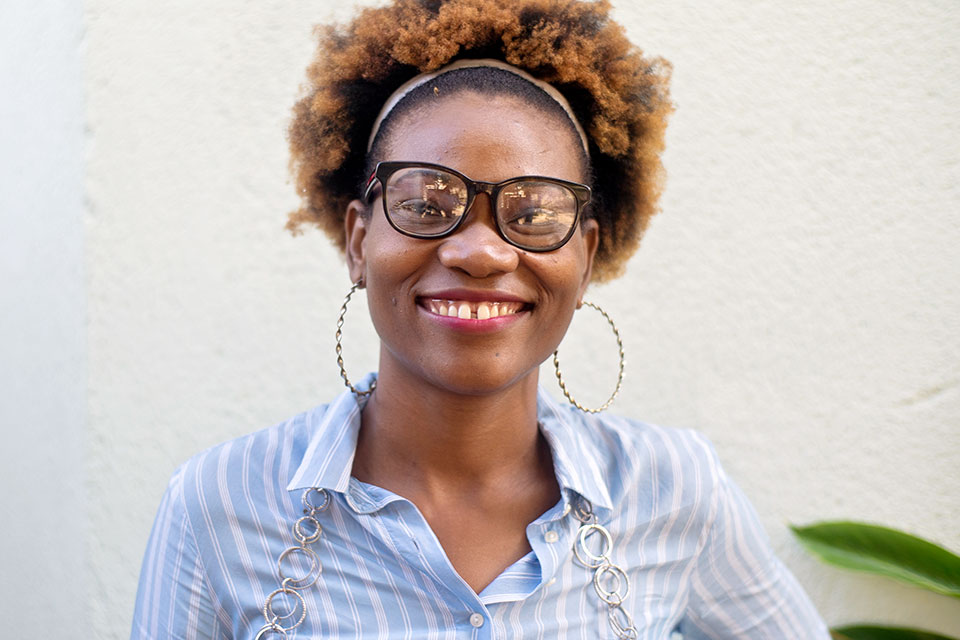Take five: As Haiti battles COVID-19, services to protect women and girls with disabilities are critical
Date:

Emanuela Paul is the Rethinking Power Program Coordinator with Beyond Borders/Depase Fwontyè yo. The programme focuses on preventing violence against women and girls, including women and girls with disabilities, in Haiti and implements a project with funding from the UN Trust Fund to End Violence against Women. In light of COVID-19, she explains how her organization has adapted its approach to community mobilization and the dialogues they create in the community.
What is the situation of women with disabilities in Haiti in the context of COVID-19?
Based on what we hear from our communities and partners, the situation of women and girls has become more complicated and difficult due to COVID-19. They are experiencing problems in getting transportation and assistance to get food, supplies and water, and to protect themselves from the virus.
Their risk of contracting the virus may be higher as well, since they count on others for care and even if they protect themselves, their caregivers may not. We know that isolation, especially with family and caregivers who may not always understand girls’ rights, women’s rights or disability rights, tends to increase violence.
What does the data say about the increase in violence in the country?
The Haitian Secretary of State on Disability Soinette Désir reports that COVID-19 has worsened the situation of women and girls with disabilities, who are experiencing sexual violence at greater rates and suffering some of the economic hardships mentioned above as well. As the practice of sheltering in place spreads, we anticipate increased intimate partner and sexual violence, just as has been seen in other parts of the world.
How have you had to adapt your services in light of COVID-19 restrictions?
In normal times, Beyond Borders uses ‘Safe and Capable’, a UNTF EVAW-funded complementary resource pack to prevent violence against women and girls with disabilities, along with the ‘SASA!’ methodology from Raising Voices and our own ‘Power to Girls’ methodology. As these are all community mobilization approaches that create change through people’s social connections and networks, we have had to stop a lot of our normal, daily activities. Instead, we are using our close relationships and strong networks in communities for some alternate activities to support girls and women with disabilities, and all women and girls in our communities and beyond.
How are you altering awareness-raising activities?
Beyond Borders is creating a series of communication materials, including self-filmed videos, radio spots, social media memes, and quick chat conversation guides – all of which are adapted to provoke thinking and conversation on violence against women and girls during COVID-19. These will be used by our staff, community networks, girls’ group members, and in our partner organizations and social networks across Haiti.
In addition, several community network members, school focal points, and girls’ group mentors will be trained in dialogue-style megaphone campaigns using quick-chat conversation guides. One guide specifically speaks to issues facing girls and women with disabilities. A mix of audio and visual materials allows for maximum accessibility, and, pending funding availability, the organization will ensure videos are available in Sign Language.
How are you working with decision-makers?
The Mayor’s office, which partners with us on initiatives, has agreed to prioritize women and girls with disabilities in the community in the distribution [of hygiene kits] and also verbally discussed measures to prevent sexual exploitation. We are also sharing Ministry of Health and other relevant prevention messages via WhatsApp groups, text messages and phone calls. A communication committee has also been formed, which is responsible for vetting these messages to ensure validity and appropriateness of content and clear communication channels.